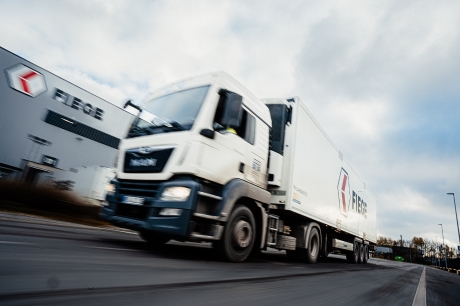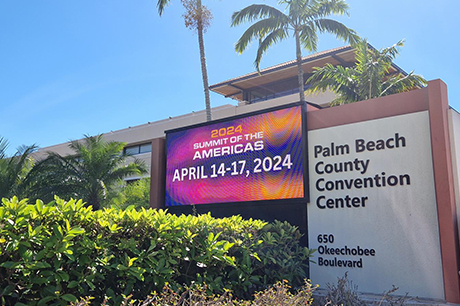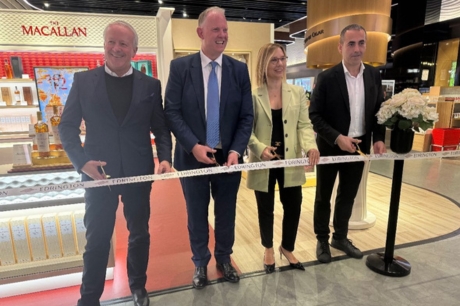Diageo, Heinemann and Fiege team up to cut logistics CO2 emissions
By Kristiane Sherry |

The trial could cut the carbon footprint of Diageo’s Germany Heinemann haulage by 88%.
Spirits supplier Diageo, travel retailer Gebr. Heinemann and transport firm Fiege have announced a long-term trial to cut logistics CO2 emissions through the use of hydrotreated vegetable oil (HVO) biofuel.
All transportation of Diageo spirits to Heinemann travel retail sites across Germany are being handled by Fiege HVO transport – heavy goods vehicles powered by a biofuel other than diesel.
The three hope that by using HVO they will “markedly” lower the environmental impact of the associated logistics.
It is described as an “intermediate” solution for long haul HGV decarbonisation, and is made from waste organic feedstocks such as used cooking oil. Diesel-powered HGVs do not need to be modified to run on HVO.
Trials have shown that using HVO instead of diesel can cut CO2e emissions by as much as 88%, Diageo said.
By switching to Fiege’s HVO transport, Diageo and Heinemann have the potential to save 85T of CO2e annually.
“There is no escaping the fact that Diageo products in the travel retail channel are moving around with a carbon cost,” said Andrew Cowan, Managing Director of Diageo Global Travel.
“The more solutions we can find to reduce the carbon impact of the movement of our goods, and test and trial with our partners methods which significantly reduce the amount of CO2 produced the better.
“We are so pleased that Heinemann was so receptive to trialling this and I hope we can expand beyond this first trial as we seek to do more to bring our 2030, Spirit of Progress environmental ambition to life with more customers and partners like Fiege and Heinemann in more locations.”

Heinemann’s distribution centre
Saskia Möller, Director Compliance & Corporate Responsibility at Gebr. Heinemann, added: “The project is driven by a common vision and aligned goals: we want to significantly reduce CO2 emissions in the supply chain, and we will do this by bringing together all supply chain stakeholders. The use of HVO as a truck fuel is an important step.”
Michael Meier, Director Planning & Order Management at Gebr. Heinemann, commented: “The efficient use of resources is fundamentally linked to our corporate goals.
“As the supply chain is responsible for a significant part of CO2 emissions, it is an important lever in achieving these goals. But it requires collaboration of equally ambitious parties and we are happy that we are able to realise this project together with our partners.”
Last year, Virgin Atlantic became the world’s first carrier to achieve a 100% Sustainable Aviation Fuel-powered commercial flight across the Atlantic.
TR Consumer Forum: Agenda & speakers revealed
Influential speakers will unpack the most effective strategies for understanding and engaging...
OUT NOW: March/April Leading Americas Operators
The TRBusiness March/April 2024 edition boasting the inimitable leading Americas Operators...
IAADFS evolves; Americas summit to move to Miami
The International Association of Airport and Duty Free Stores (IAADFS) has adopted a new...

In the Magazine
TRBusiness Magazine is free to access. Read the latest issue now.

 Trbusiness. The travel retail Trbusiness. The magazine for global retail and duty free professionals.
Trbusiness. The travel retail Trbusiness. The magazine for global retail and duty free professionals.





















